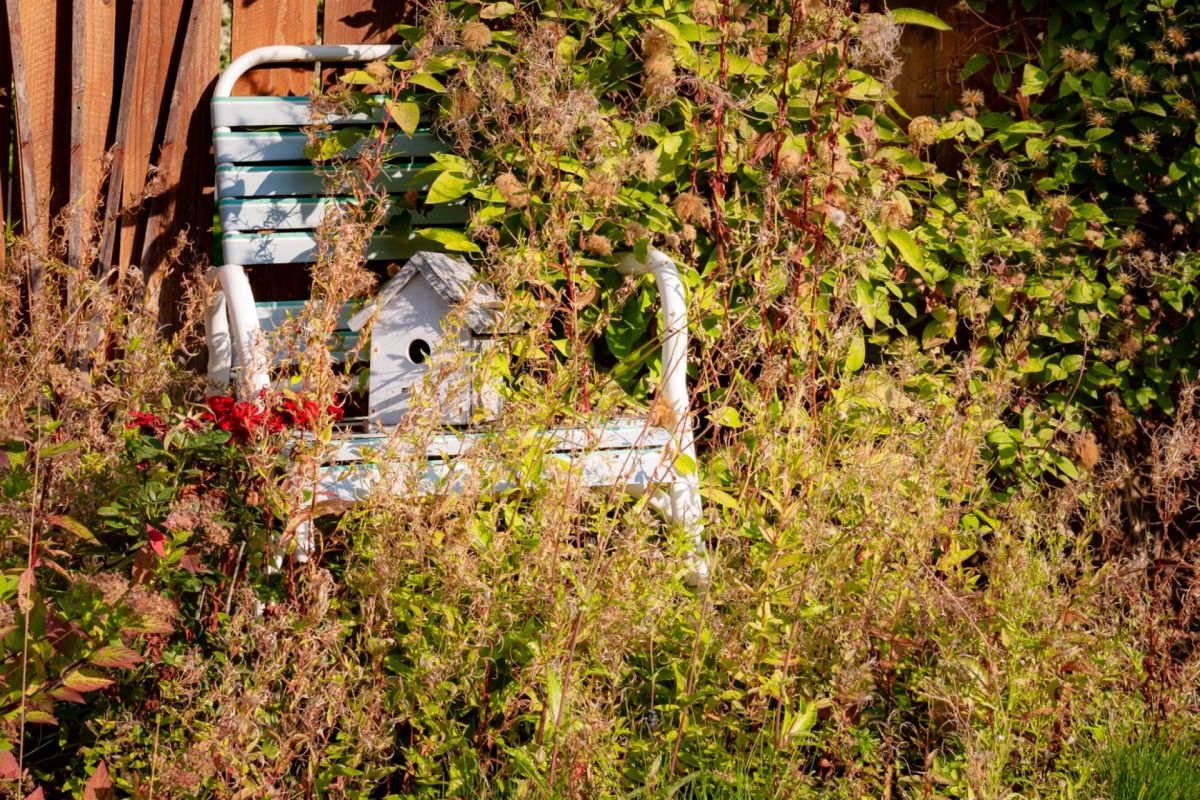Homeowners are reaping the benefits of "right to garden" laws, which states are increasingly passing across the U.S.
One Chicago neighborhood has met with particular approval from the r/NoLawns subreddit, where a Redditor has shared pictures of three wild gardens all growing in a row.
A pair of side-by-side photos show three next-door neighbors that have foregone their lawns in favor of meadow gardens, where plants like monarda (red bee balm), hosta, and hydrangeas are flourishing.
"I run through this neighborhood most days and really enjoy this little treat," the Redditor wrote in a caption. "It smells amazing and fresh."


Illinois passed its "right to garden" legislation in 2021, which protects homeowners' right to cultivate vegetables, herbs, pollinator plants, flowers, and leafy greens on their own property.
At the moment, Illinois is one of two states that has implemented such a law; Florida passed its own in 2019. But the movement is spreading: Wisconsin is set to debate a similar bill, and others may well follow.
Crucially, "right to garden" legislation protects homeowners in an HOA, which have been known to dictate what gardeners can and can't plant — with some being hostile to less orderly-looking wild gardens.
It means that homeowners can replace their manicured lawns with more plants that require less water — a gardening trend that is becoming increasingly prudent in the U.S.' changing climate.
The water departments in Colorado, Utah, and Los Angeles have all offered grants to help citizens strip out their grass lawns in recent years in an attempt to reduce water-intensive gardening.
An estimated 30% of an American household's water use goes exclusively to the outdoors, with half of that being dispensed on lawns alone. In hotter states in the Southwest, which have been experiencing a historic drought, that number will be even higher.
Protecting homeowners' ability to experiment with gardens that require less water is one small but essential step toward mitigating the impacts of soaring temperatures.
"If I lived next to these properties, I'd be love-bombing the gardener with organic compost, mulch and cookies," one Redditor commented.
"Gorgeous. I bet the homeowners talk shop and give each other plants. Neighbor goals," another added.
"So beautiful!" another user agreed. "This definitely speaks to the need to get buy-in from neighbors, as a larger native space across multiple lots creates a lot of neighborhood cohesion."
Join our free newsletter for easy tips to save more, waste less, and help yourself while helping the planet.









